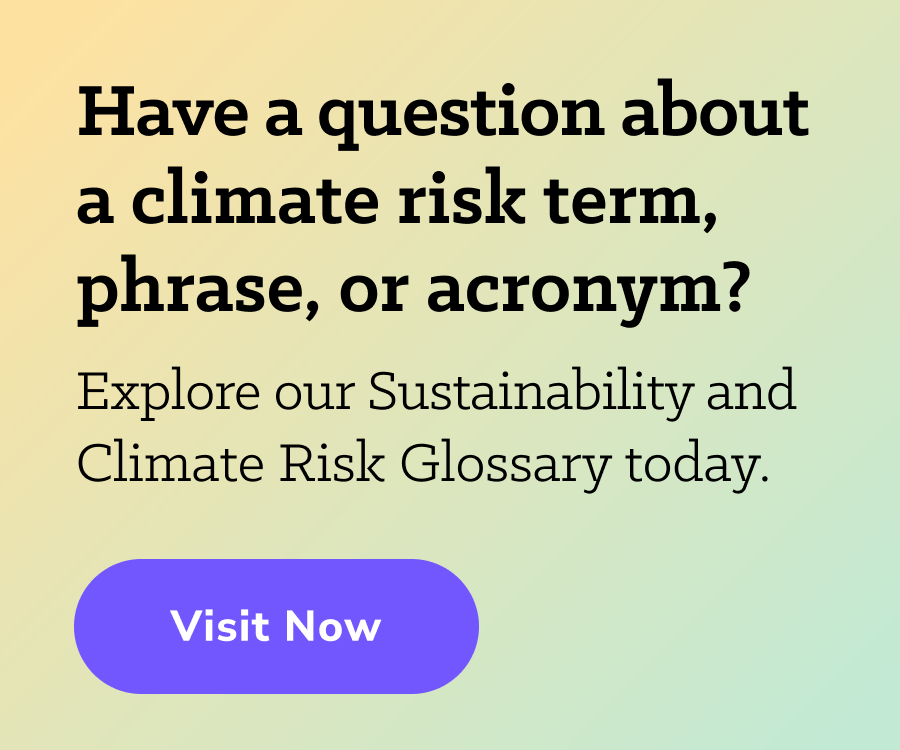
It is just over a year since the International Sustainability Standards Board (ISSB) published its first IFRS Sustainability Disclosure Standards, IFRS S1 on general requirements for sustainability reporting and IFRS S2 on climate-related disclosures.
Many companies already make climate-related disclosures using the recommendations of the Task Force on Climate-related Financial Disclosures (TCFD), including in the UK where many listed companies are required to disclose climate-related information. As companies prepare to apply the ISSB Standards, how do the two compare?
Veronica Poole
The first thing to note is that the ISSB developed its standards based on existing content, incorporating TCFD and drawing on the IFRS Accounting Standards and the Sustainability Accounting Standards Board’s (SASB) Standards. This enabled the Financial Stability Board, which convened TCFD, to state that the ISSB Standards should serve as a global framework for sustainability reporting, to transfer the monitoring of climate-related disclosures to the ISSB, and to disband the TCFD itself.
The aims of IFRS S2 and TCFD are the same: to communicate to providers of financial capital consistent and comparable information about the risks and opportunities presented by climate change over the short, medium, and long term, disclosed in mainstream corporate reports, with a focus on decision-useful information. Both emphasize the need for connectivity of climate disclosures with related financial information and for industry-specific information to enhance comparability.
From a Framework to a Standard
A key difference is that whereas the TCFD recommendations provide a framework for action and communication, IFRS S2 creates a standard to bring the right level of transparency to the actions taken, providing a rigor that can enable consistent and comparable disclosures, supported by robust governance, internal controls, and assurance.
IFRS S2 must be applied alongside IFRS S1, which sets out general requirements that provide an essential underpinning. IFRS S1 includes concepts such as value chain, time horizons, and the discipline around transparency on use of judgements, estimates, and comparative information. IFRS S1 also brings in attributes of information that are in common with financial reporting: useful information should be relevant (including the concept of materiality), faithfully represent the matters being reported, and display enhancing characteristics: comparable, verifiable, timely, and understandable.
Neil Stevenson
Climate-related disclosures under IFRS S2 are subject to materiality considerations. This differs from TCFD in that, because it sees climate change as a non-diversifiable risk affecting nearly all industries, it envisages investors would expect insight into governance and risk management over climate matters, and it recommends companies should disclose scope 1 and 2 Greenhouse Gas (GHG) emissions irrespective of materiality. In practice, this should not lead to a difference in the disclosure outcome because the pervasive nature of climate change means that climate risks and opportunities have become a board topic for many companies.
Climate-Related Risks and Opportunities
When identifying climate-related risks and opportunities, both TCFD and IFRS S2 take a broad approach—companies should consider their value chain and time horizons that include the long term, and how the identified matters have affected the financial results in the period and are anticipated in the future. Under TCFD, companies should consider risks and opportunities that closely relate to climate such as water, energy and land use, and waste management. The ISSB has issued educational material that emphasizes these broader connections between climate-related matters and other risks and opportunities, including nature and a just transition (described by the ISSB as a transition to a lower-carbon economy in a way that is as fair and inclusive as possible to everyone concerned and maximizes opportunities for decent work among all communities, workers and social groups). This broader focus is integral to the ISSB Standards, which require companies to identify and report more holistically the sustainability matters—people, planet, and prosperity for society—that could affect their prospects, described as their cash flows, access to finance, and cost of capital over the short, medium, and long term.
Disclosure requirements
TCFD and IFRS S2 both require information about the company’s governance, strategy, risk management, and metrics and targets relating to climate-related risks and opportunities. These areas reflect how a business is run and have served well as a framework for decision-useful disclosures under the TCFD.
The ISSB itself developed an overview comparing its climate standard with TCFD, highlighting how it has built on TCFD guidance. Generally, the ISSB notes that it may use different wording to describe broadly consistent requirements or require more detailed information; and it includes some additional requirements and guidance, consistent with the TCFD recommendations as a whole. On the latter, perhaps the most notable addition is the inclusion of detailed requirements for industry-specific information and guidance setting out disclosure topics and metrics by industry, derived from the SASB Standards (which now form part of the ISSB).
Here, some important considerations for companies are highlighted.
On strategy, TCFD’s 2021 updated guidance placed greater emphasis on transition plans, which is also a disclosure requirement in IFRS S2. The ISSB intends to issue educational material to enhance transition plan disclosures, based on the guidance issued by the UK Transition Plan Taskforce which is now transferring to the ISSB. Both the 2021 TCFD guidance and IFRS S2 emphasize disclosure of the financial effects of climate risks and opportunities—both current and anticipated. IFRS S2 includes guidance on how to approach disclosures on financial effects when the company concludes it is unable to prepare quantitative information. Scenario analysis features in both TCFD and IFRS S2, but the latter includes more detailed disclosure requirements on the approach used for assessing climate resilience through scenario analysis.
The metrics categories are the same in both sets, setting out disclosure of GHG emissions, financial metrics, internal carbon prices that may be used, and remuneration linked to climate matters. While TCFD recommends that companies consider disclosing scope 3 GHG emissions in addition to disclosure of scopes 1 and 2, this is mandated by the ISSB (subject to materiality). IFRS S2 requires companies to measure their GHG emissions using the Greenhouse Gas Protocol. It also requires certain financial institutions to disclose financed emissions. IFRS S2 includes a measurement framework to support high-quality and proportionate application of measurement of scope 3 GHG emissions, in recognition of the extensive estimation required.
A further enhancement in IFRS S2 is on disclosure of targets. The ISSB has introduced requirements that bring additional specificity in support of credible and transparent targets including how the target was developed, what part of the company it applies to, and how performance will be evaluated. Companies should state whether a GHG emissions target has been informed by ‘the latest international agreement on climate change, including jurisdictional commitments that arise from that agreement’, whether it has been validated by a third party, and what use of carbon credits is planned to offset GHG emissions. IFRS S2 requires companies to disclose a gross GHG emissions target excluding use of carbon credits. If a company is planning to use carbon offsets (for a net target), disclosure is required about the third party used to verify or certify them, the type of carbon credit used, whether the underlying offset is achieved through carbon reduction or removal, and assumptions regarding the permanence of the removals.
Conclusion
Companies that have a good history of sustainability reporting, especially those that have used the TCFD recommendations and the SASB Standards and included information in their mainstream corporate reports, should be in a good place to apply the ISSB Standards. However, applying the ISSB Standards requires a level of robustness and rigor in governance, internal controls, and reporting processes, including over methodologies and data, that are likely to mean most companies will need to strengthen their approach. This will be especially important for companies seeking to obtain assurance, on a voluntary basis or due to mandatory jurisdictional requirements.
However, making this effort should be worthwhile—climate-related risks and opportunities are increasingly becoming material to each business, relevant to the long-term resilience and sustainability of business models. Investors continue to highlight that transparent disclosure about climate governance, strategy, risk management, and metrics and targets work together to allow them to factor climate risks and opportunities into their decisions, in turn helping to direct finance to the transition to a low carbon economy. The ISSB Standards provide a robust infrastructure to support this outcome.
Veronica Poole is Deloitte Global IFRS and Corporate Reporting Leader. Veronica is responsible for Deloitte views on all IFRS and corporate reporting matters and is a vice-chair of Deloitte UK. She has played a prominent role in facilitating harmonization of sustainability standards and advancing a comprehensive corporate reporting system. She helped launch the UK directors’ climate forum – Chapter Zero – and spearheaded Deloitte’s partnership with Accounting for Sustainability (A4S) Finance for the Future Awards.
Neil Stevenson is a director, Deloitte UK. Neil specializes in corporate reporting, including sustainability, working on projects aiming to increase collaboration and alignment between sustainability standard-setters and organizations. At Deloitte, Neil co-chairs a global expert panel on sustainability that advises on developments in sustainability reporting and guidance on application of standards.
Topics: Green Finance & Sustainable Business, Climate Risk Management
